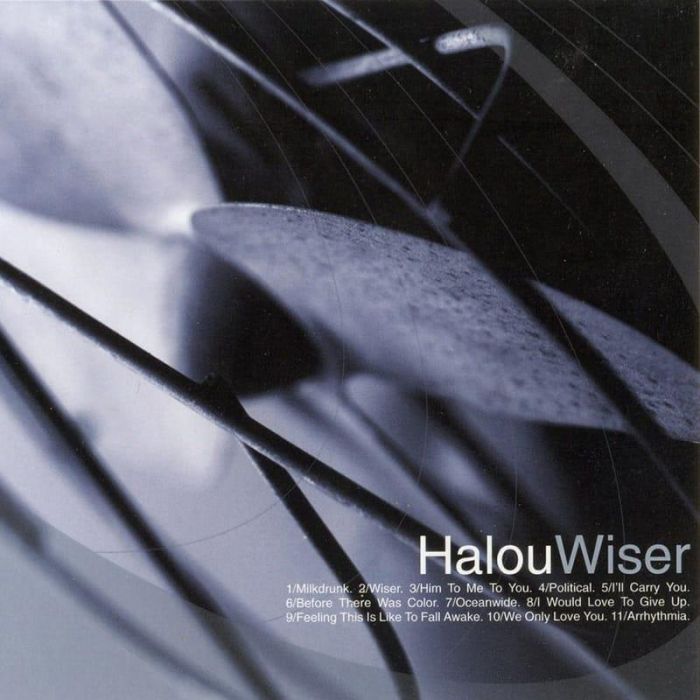Wiser by Halou (Review)

Wiser has been several years in the making, or at least it feels like that. In fact, it’d been so long that I was starting to wonder if we’d ever hear from Halou again. Of course, the band probably felt much the same way. After We Only Love You was released, their label, Bedazzled, went under. The band was left without a label, even in the midst of working on the followup to their stellar debut. But it’s apparent, after Wiser has a chance to sink in, that it was time well spent.
Wiser doesn’t stray far at all from the formula Halou established on their 1998 debut, We Only Love You. Of course, they didn’t really need to at all. With their debut, the band proved they were quite adept at merging elements of industrial, trip-hop, goth, and shoegazer, and crowning the results with Rebecca Coseboom’s gorgeous vocals. Don’t let any of those genres I namedropped steer you wrong, or deter you from getting the album. Halou’s influences are immediately obvious (4AD, Creation, WaxTrax), as are their contemporaries (Lamb, Bows, Portishead). But that doesn’t prevent the band from pushing ahead with breathless abandon and creating a fine album.
“Milkdrunk” immediately sets Wiser’s tone. Melancholy synthwork, string arrangements, simmering electronics, and jazzy rhythms provide a suitable environment for Coseboom’s breathless vocals, which lend the song’s cool electronics their warmth and intimacy. But without the harshness provided by the music (which has its obvious roots in darker electro circles), her vocals would be only so much pretty cooing.
It’s a precarious equilibrium, and the album doesn’t always achieve it. “Him to Me to You” might be the best song Lamb never wrote, but Coseboom’s vocals take on an aggression never matched by the music. And the programming on “Before There Was Color” seems more interested in throwing out odd, bouncy sounds instead of bolstering Coseboom’s voice.
But when that equilibrium is attained, it’s just gorgeous. “Political” is one of Wiser’s subtler, more restrained tracks, and it ranks up there with anything Bows has ever done. But Coseboom’s distant vocals and the hazy electronics create a dreamy atmosphere where everything is colored in sensuality and warmth. This mood is continued on “Oceanwide,” the album’s centerpiece and it’s most solemn track. The whole song feels rendered in slow motion, every aspect of it left for the listener to delve into and relish.
Wiser also features revisions of 3 tracks from We Only Love You: “I’ll Carry You,” “Feeling This Is Like to Fall Awake,” and “We Only Love You.” “I’ll Carry You” was one of the previous album’s highlights for me, a beautiful electro-ballad; the version here is more stripped down and tentative. “Feeling This Is Like to Fall Awake” is Wiser’s most aggressive track, and displays Halou’s edgiest side. It certainly delivers the album’s most caustic lyrics (“I feel like such a fool for having turned to you/I didn’t know that you could ever want to be so cruel/And if there is a God/And if God is fair/I know you will suffer”).
“We Only Love You” should be the band’s mission statement, and perhaps a less-than-veiled response to the various tribulations that have beset them over the years. It also reinforces the fact that these are living, breathing, feeling human beings making this music, as Coseboom asserts “And we do what we love… And we weep and we bleed/And we hope and we hope/And we only love you/Hope you feel it.”
Unlike some electronic artists who hide behind their samplers, synths, and Pro Tools, Halou is exactly the opposite. However cold and industrial the rhythms might be, however eerie and alien the soundscapes might get, there’s a heart beating at their center. It’s not techno… it’s not even very danceable. But whatever club appeal it might lack, it more than makes up with its human appeal.